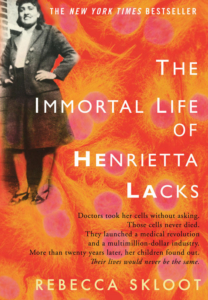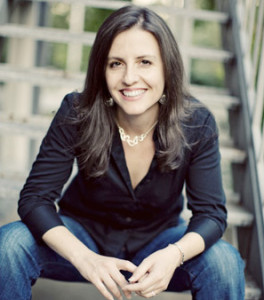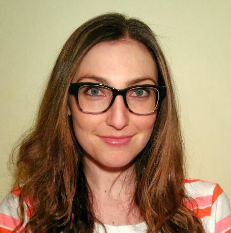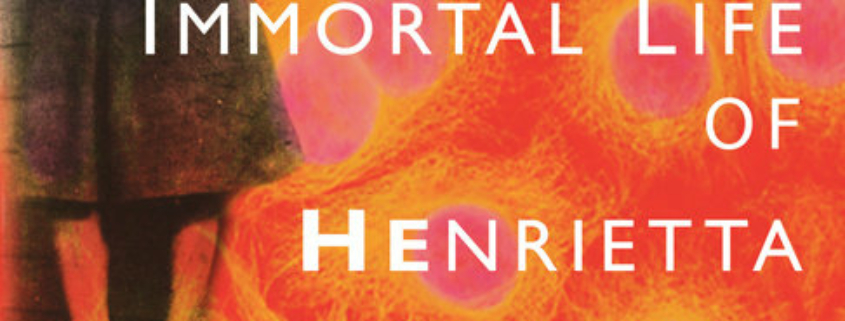Writers Read: The Immortal Life of Henrietta Lacks by Rebecca Skloot
 In the bestselling medical ethics-centered nonfiction work The Immortal Life of Henrietta Lacks, author Rebecca Skloot uses primary resources, including one thousand-plus hours of personal interviews, to piece together a life—Henrietta Lacks’s—lost too soon to cervical cancer yet forever immortalized, thanks to the science of cell culture. Like a wedding cake, the book is rich in its many layers. There is the history of tissue research and the shifting legality behind it, which is absolutely fascinating, there is the heart-wrenching racial component, as Lacks is a black women who dies in the early 1950s, and then there’s the human interest aspect, which, for me, is the most gripping. Through a structure that mirrors the complexity of a cell, Skloot teaches the reader a thing or two about craft, while raising “important issues regarding science, ethics, race, and class” (xiv).
In the bestselling medical ethics-centered nonfiction work The Immortal Life of Henrietta Lacks, author Rebecca Skloot uses primary resources, including one thousand-plus hours of personal interviews, to piece together a life—Henrietta Lacks’s—lost too soon to cervical cancer yet forever immortalized, thanks to the science of cell culture. Like a wedding cake, the book is rich in its many layers. There is the history of tissue research and the shifting legality behind it, which is absolutely fascinating, there is the heart-wrenching racial component, as Lacks is a black women who dies in the early 1950s, and then there’s the human interest aspect, which, for me, is the most gripping. Through a structure that mirrors the complexity of a cell, Skloot teaches the reader a thing or two about craft, while raising “important issues regarding science, ethics, race, and class” (xiv).
The book, which takes the form of a braided narrative, begins with a prologue, wherein Skloot explains her relationship to the story we’re about to read. What might otherwise read as biography is in fact investigative reporting with a twist: Like in Susan Orlean’s The Orchid Thief or Richard Preston’s The Wild Trees, the narrator herself is a character, and she is smart to reveal this from the beginning. As a young biological sciences student, Skloot stumbles upon what will later become the idea for this project when she is introduced to HeLa cells—cancerous cells that were extracted from the then-living Lacks’s cervix without her consent, then grown in culture medium until they divided, ad infinitum, and spread “like crabgrass” to become a valuable and viable research tool (41). The young Skloot immediately wants to know more about the woman behind these miraculous and fruitful cells. But she hits a wall, and not of the cervical variety. There is practically no information to be found on the lady whose tissue has been involved in polio, cancer, and AIDS advancements, as well as space research, to name a few. Some articles claim her name was Helen Lane. Others say Henrietta Lakes. One 1976 Rolling Stone piece by Mike Rogers gets it right, as does the Adam Curtis BBC newscast The Way of All Flesh from 1998. But by and large, the masses are ignorant about Lacks and her cells. Even the Lacks family has a limited comprehension of what their beloved matriarch has contributed to medicine. The enterprising Skloot, however, with a background in science and an MFA in creative writing, sees this hole in public knowledge as an opportunity to tell Lacks’s story, which has, for her, become a fixation at this point (6).

Photo: Rebecca Skloot, author of “The Immortal Life of Henrietta Lacks.” Credit: Crown Publishers / Random House
Just as soon as the author reveals her relationship to the narrative, she vanishes—zooming in on braid number one—the Henrietta Lacks braid. For thirteen of the novel’s thirty-eight chapters, Skloot acts as an omniscient third-person narrator, here to reveal a woman to us. It’s 1951 in Baltimore, and Lacks is about to discover her deadly cancer at Johns Hopkins Hospital. We meet her husband David (who is also her cousin) and their five children, including one who is a newborn and another who will later be institutionalized for epilepsy and cognitive disabilities before dying at age fifteen. We find ourselves rooting for Mrs. Lacks’s recovery, for her own sake and for the sake of her five small children, even though we already know her fate—Skloot revealed that much in the prologue, using the retrospective mode. But even post-mortem, Lacks’s braid lives on, like her cells; the focus merely shifts away from her and toward the living Lackses.
After she discloses Lacks’s fatal tumor, the author pans the camera back even further than the ’50s. She stops in the year 1920, when Lacks is just a girl, and briefly touches upon the next twenty-two years of Lacks’s life. As soon as we find ourselves invested in this feisty, independent spirit—this strong child who develops into a strong woman—we jump forward to 1951 again, where we meet tissue culture researcher George Gey—the man responsible for growing “two dime-sized pieces of [Lacks’s cervical] tissue” into “the first immortal human cells” (33-34). As it turns out, Lacks’s will be the first cells not to die in his lab “like all the others” (33). This chapter represents the second braid in the book—the science braid—which ultimately fills eleven chapters. (It also fills our brains with detailed but digestible knowledge. Kudos to Skloot for her handiwork here.)
In the prologue, we learn that the author is both the narrator and a character, but she makes us wait forty-two pages until she re-enters as the leading figure of the third braid, and this heightens the suspense. “I realized I needed to be in the book,” she said.
In the prologue, we learn that the author is both the narrator and a character, but she makes us wait forty-two pages until she re-enters as the leading figure of the third braid, and this heightens the suspense. “I realized I needed to be in the book,” she has said of her role as herself—a twenty-something doe-eyed, ambitious journalist who wouldn’t take “no” for an answer. Her strand is not a self-aggrandizing one, though. On the contrary, it is often interwoven with hard-won information about Lacks’s four living children, especially Deborah, with whom Skloot eventually forms “a deep personal bond” (7). The journey for the narrator to get to this place of mutual understanding with Deborah, however, is paved with tension and strain, as the Lacks children are implicitly distrusting of white people and the media and doctors, and Skloot represents two out of the three.
The effect of multiple narratives coming in and out of focus maintains our interest and creates a sense of tension, which is necessary in a story where the ending is known. As memoirist and teacher Sven Birkerts writes in The Art of Time in Memoir, “Two [or more] essential time lines braiding … give[s] us a simulation of change and growth” (107). In this case, change and growth come on the part of the characters: Deborah learns to be more trusting of the “other” that Skloot represents, and Skloot forms a lasting connection with a family so different from her own. Moreover, Skloot uncovers previously-unknown information about an influential but obscure female figure in medical history. Perhaps even more important than the personal change Skloot documents is the societal change. As part of the science braid, she presents the shifting views and laws concerning medical ethics and patient rights over the decades. And, as she reminds us in the story’s afterward, “The [tissue] issue isn’t going away anytime soon” (327).
In combination with the braided construction (in the author’s own words, “It’s three narratives braided together … the story of me and Deborah, the story of Henrietta … and the science [surrounding the HeLa cells]”), Skloot chooses a non-linear structure to tell her story. The book begins in 2009 with Skloot’s prologue, rewinds to 1951—the year when Lacks dies but her cells live on—then delves even further into Lacks’s past (1920-1942), before all three braids move forward chronologically towards 2009, when the book is printed—ten years after Skloot first began her investigation. Turn to the back of the book, and you’ll find a chronological accounting of events from 1998 to 2009—in case you can’t keep it straight.
“The narrative jumps around in time back and forth between [sic] the three different narratives … and between multiple stories and scientific discoveries …” Skloot has shared, adding that in the writing of them, she tackled them separately and chronologically (and with three different-colored flashcards) before daring to weave. Ultimately, this jumping around—like the braided construction—keeps us wanting to read on, wanting to turn the pages so that we might fill in the blanks, be they gaps in the timeline or missing pieces to of any of the three stories. Ultimately, while each strand is separate, there is overlap. “I became a character in her story, and she in mine”, Skloot writes of Lacks, and this human interest piece, overlying the historical and the scientific, is what makes this not only an informative read, but also a richly satisfying one (7).
Skloot, Rebecca. The Immortal Life of Henrietta Lacks. New York: Broadway Books, 2010.
Birkerts, Sven. The Art of Time in Memoir: Then, Again. Minneapolis: Graywolf Press, 2008.






